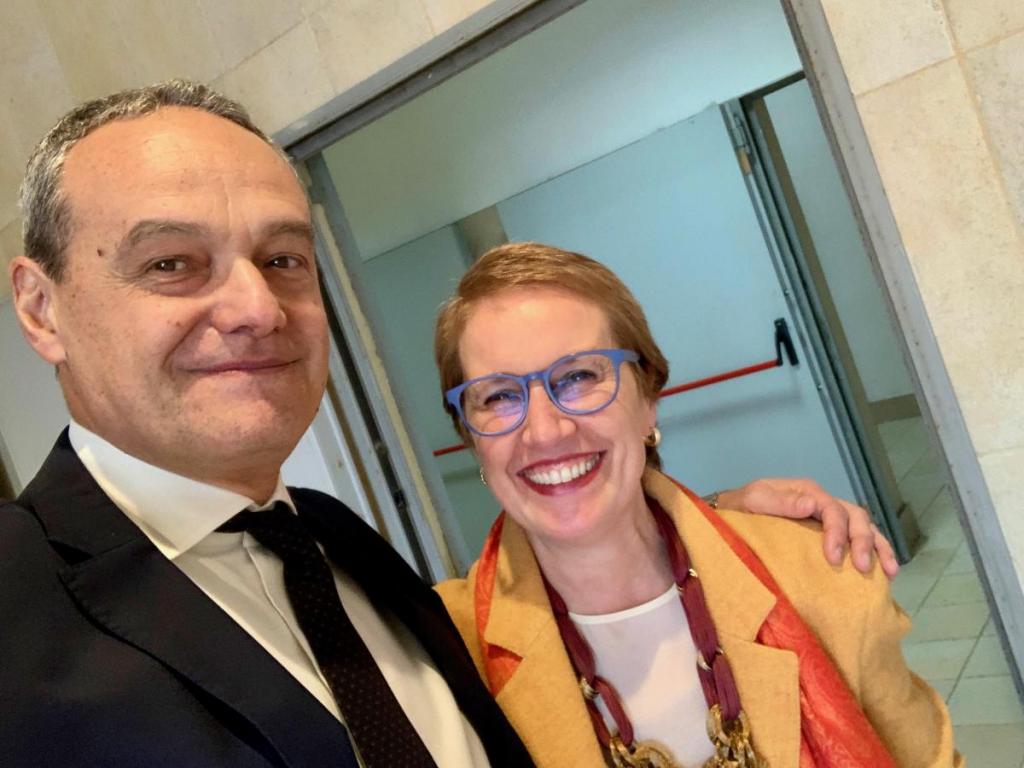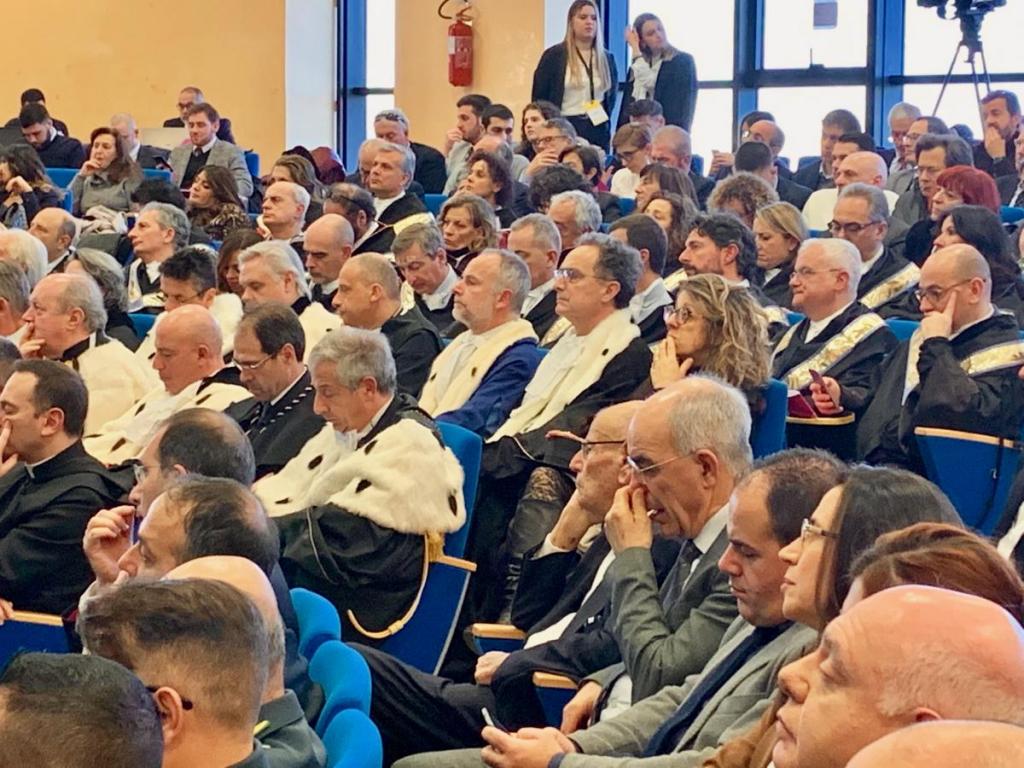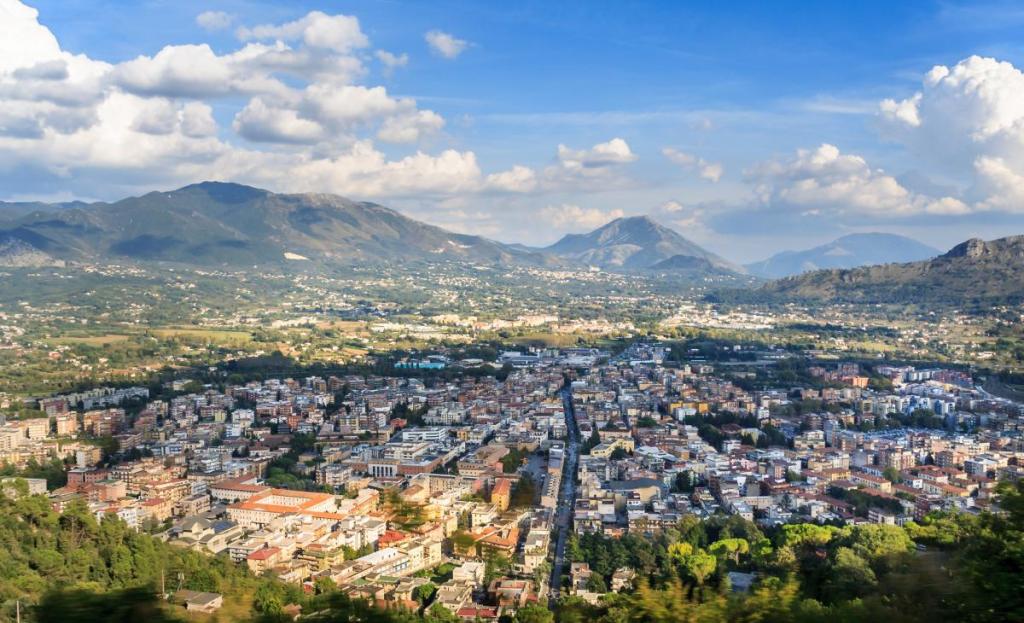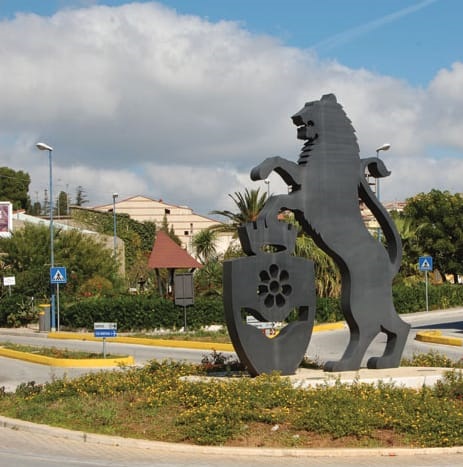For the first time I participated in the inauguration of an Academic Year of the University of Cassino and Southern Lazio, alongside the Minister of Universities and Research Gaetano Manfredi and it was the occasion for a reflection on the role of this institution in our future and in that of our young people.

I had loved university deeply, but then I moved away and Cassino has made me return to my initial passion.
The inauguration consists of a very special ceremony that excites and restores the sense of institutions. It all starts with the 'procession' of professors and rectors dressed in robes and stoats who enter the main hall.

About thirty rectors from various parts of Italy have arrived and as they were presented with their name I realized that more and more university names have a clear link with their area. ‘University of Sannio’, ‘University of Molise’, etc ... and therefore it is no coincidence that, during the crisis period, the University of Cassino also changed its name to "Cassino and Southern Lazio". But why?
The role of the Territorial University
After over ten years of deep crisis in Italy and in part of the western world, universities have changed their role in society and those who have understood this have become a driving force for local development.
Let's look at the general scenario: large factories have closed, medium-sized enterprises have shrunk and become small, a fabric of 'low-education micro-enterprises' has been formed (in which we also include the so-called 'VAT people') and young graduates who have abandoned Italy that could no longer give them their dreams.
I belong to the baby boom generation, born in the most prosperous period for the Italian economy and I grew up in a sparkling and stimulating environment where you could realize any dream and idea. The bureaucracy was lean, the banks were giving out money, the state was taxing at the right level and the market was pulling. There was an air of challenge, growth and competition to have the biggest dream.
I believe that none of today's youth can experience this feeling if they don't go to China (apart from the virus).
The factories had the role of 'social elevators', that is, the young graduates entered and if they proved to be worth they could progress to become the top management. The factories therefore helped the social growth of people within their community. This opportunity helped young people to dream and commit to work.
But if the factories no longer exist, if those that have remained have their owners elsewhere, if the size of the small businesses give space above all to the members of the owner’s family, what dreams remain for the young?
Today, decentralized universities play the role of a 'social lift' and support the growth of the territories in which they exist.
By changing its name to the 'University of Cassino and Southern Lazio', the institution actually made a 'growth pact' with this territory. The university makes sense if the territory grows and is vibrant, the university’s brand coincides with that of the territory.
And this means a different kind of connection, a presence of the rector and his representatives in the most important local events, a support for the growth and socio-economic conversion of the communities.
The rector Giovanni Betta defined it as 'the ability to fertilize the territory in which we operate'.
A synergy such as that which occurred with the Abbey of Montecassino and the international summer school about the ancient manuscript, the one with major industries in the automotive sector on the challenge of being protagonists of Industry 4.0.
It also means making agreements with communication businesses, such as our discoverplaces.travel portal, which has the task of exposing and enhancing research that may be of interest to a tourist - to intrigue him and maybe encourage him to stay longer in the area during his trip.
If the small beautiful villages of lower Lazio, Molise and Campania can have a future only by learning to 'build tourism' in a professional way, the university has the role to support and stimulate the growth of the people who can play this role.
For example, the University of Cassino has the Italian record of first graduates in the families of origin. The university thus becomes the guiding beacon, the place where new business ideas can arise with co-working spaces and incubators, such as that of Cassino.
GLOCAL and transcultural university
So far we have talked about Cassino as a territorial university, but this must not suggest a 'diminutio' but this is just one of its tasks and I would also say of its responsibilities.
In reality, research is always international and I would not bore you with just the excellence of Cassino's, but the figure of the growing enrolment of more than 10% of foreign students is significant in recounting its international role.
In this matter, one thing struck me deeply in the inaugural speech of Prof. Giovanni Capelli on the subject of 'transculture'.
The creativity and growth of new businesses takes place increasingly in unexpected multicultural contexts. We always cite the example of Steve Jobs who had the inspiration for his human / computer interface system by attending a calligraphy course, but this is no longer enough.
If the text "accidental combination" gives the idea of something occasional, the term "transculture" gives the idea of a new approach where people with training and experience in sectors even distant from each other come together (combine) to build the future for the young.
In addition, teaching in university courses to have this approach means being an innovative university with deep roots in its territory but with a vision that goes far to catch the ‘signals’ from the world and convert them into local opportunities.
A university with 'dual career', that is, with double diplomas twinned with universities abroad, which creates international cultural bridges for young people and businesses.
The Communication Plan of the University of Cassino and Southern Lazio
A modern university must be able to communicate with everyone and maintain connections in real time. Speaking of transculture, everyone should learn to communicate in social networks and on the web into which today most of them are born and interpersonal and work relationships are formed and grow.
If friendships are born more and more in the digital world and the relationships between P.A. and citizens and between students and teachers happens with the mobile phone, then the way of communicating changes. It is on social networks that we go looking for and find new students, we communicate the most interesting research, appointments and current events.
The plurality of means of communication, and the reputation that must be maintained on the web, makes it necessary to share some guidelines that can strengthen the university's image more and not fragment it.
Once again Cassino is at the forefront, during the inauguration ceremony of the Academic Year the Communication Plan was presented, which in reality is a true Strategic Plan because its perception of the value of the university depends on its success in the territory, in the society and administrative and research staff.

The plan was drawn up by Roberta Vinciguerra who directs an 'orchestra' of communicators and all were live on social networks to comment and tell the opening ceremony.
Sometimes the young who spend too much time on their cell phones are made fun of, but at some point I turned to the section of the institutions and saw all the rectors on their cell phones.
We have changed and being aware of it increases our chances of success and communication is certainly one of the fundamental aspects.
The ability to understand communication and promotion as an investment and not an expense is the reason why many of our businesses and our beautiful villages fail to have the reputation they deserve.
And if I can give a suggestion to the University of Cassino I would ask you to help companies understand the role of strategic communication.
For too many years, communication has been relegated to being a marginal and non-strategic sector. A short-sightedness that our French, German and Spanish competitors certainly do not have.
The positive note of conclusion was that, thanks to the regained economic stability, Cassino has applied to host the National University Championships of 2021 in which over 5,000 student athletes, technicians, managers and companions participate. In the meantime, a cricket pitch is being created for the many foreign students.
Ad Majora! See you next year.









Follow us